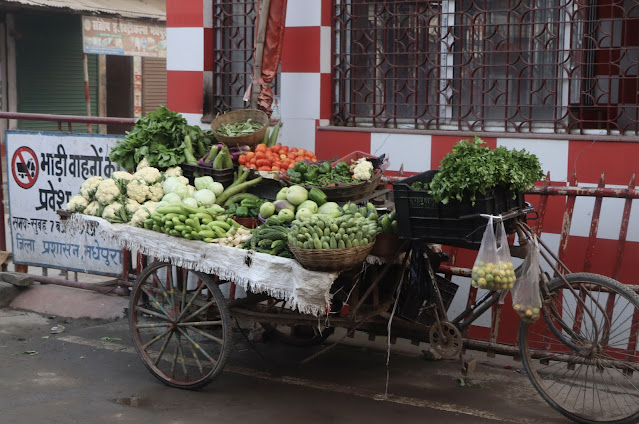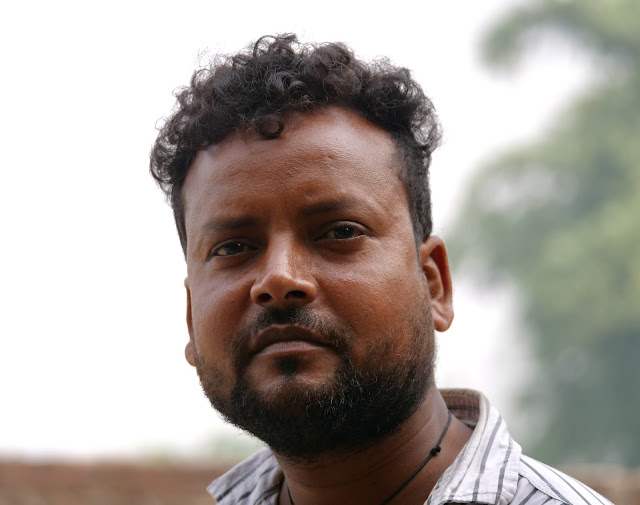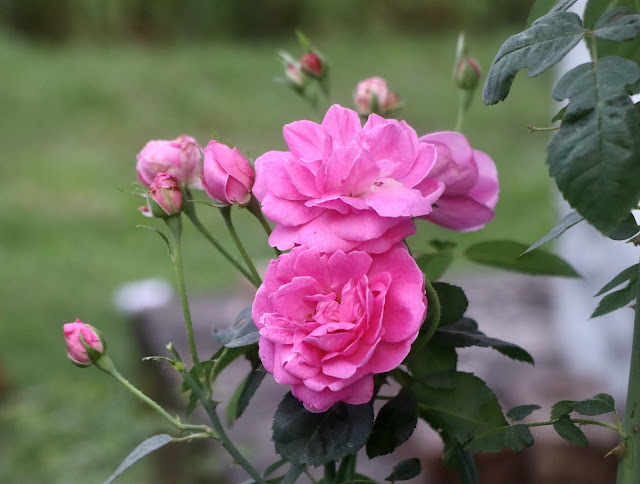The current political campaigning for five state assembly elections to choose the governments, involve a serious debate about the future of small entrepreneurs. They have limited protection and promise of financial returns as the marketing culture in the country is to promote big enterprises.
It was when I saw the field of ragi cultivation in the Madhepura Christian Hospital, I felt a new awareness about the millions of small entrepreneurs, who are scattered in the rural parts of India. The millet symbolises the food of the poor in our communities.
When I took a photograph of a single corn head, I got a sense of how one single enterprise can be lost in the mass of the multitudes of the small entrepreneurs. The recent stress that they feel, for whom support to sustain themselves is minimum through the government schemes, is causing an upheaval and unrest among them.
During the walks in the Madhepura town and in the outskirts, I found an opportunity to meet with some small entrepreneurs.
In the Main Street, a shop keeper who sells some building materials spoke about a decrease in his daily turn over by fifty percent in the last three years.
A cycle vendor who sells spices does not find any buyers on some days after travelling five kilometres. That is sometimes two or three days in a week.
A joint family who owns four buffalos and lives from the milk they sell find that the cattle food has become expensive with reduced income to live on.
A vegetable vendor, who had his cycle cart usually emptied at the end of the day is still waiting for customers in the evening, as people have bigger shops and super markets to buy from.
A cycle mending shop is beginning to feel the pressure to sustain the shop as there are less cycles on the road. The scooters and motorbikes are replacing the cycles as loans given by the bank help more people to replace their cycles with automobiles.
A family who lived on the income from the agricultural produce find the price offered to them less than what they deserve. The loan they took from the bank in January this year, for sowing expenses could not be paid back in full, as the income from the harvest was less than what they expected.
The shop keepers in this street below, do not have enough customers from the look of plenty of vacant parking space in front of their shops, which normally would be a crowded place in the evenings. The cart vendor who sold small household articles has only an occasional customer.
At the end of my walk, two men below, wanted me to take their photo while I was talking to them. The first one was a mobile vendor who is struggling to find an alternative for his daily income. He talked about how big shops and large business complexes attract people and vendors will soon go out of their job.
This young man below works in his farm and continues his bachelor's course in the evening. The income from the farm has got halved as the middle men give less for the farm produce, while they make large profits when they sell the produce to the wholesalers. He appeared distressed and talked about the politicians not being mindful of the small enterprises.
I was enthused by his spirit of enquiry and observational skills. He wanted to know about the camera I was using. He told me about some birds and their flight movements in the area. It was he, who pointed out the bush nearby where the Tailorbirds had gathered. He is one, who carries the instinct of overcoming and finding an opportunity to make a difference.
I returned from my walk thinking about the sorrowful narratives I heard during these conversations.
As the dusk was setting in, I recalled the disturbing experiences of people in my mind. I wondered what would be their lot as they return home! What I heard from different people is real story representing the hopes of about thirty percent of the low income group in India, who feel threatened or displaced by the upward mobility of the middle class.
The migration of people from the lower middle class to the middle class is slow and favours only some people. The low income group and the very low income group of people still have a long journey for an upward mobility.
The politics of capitalism is dominant. The opposite view of welfare for all and fair distribution of resources is a point of view, owned and practiced only by a section of politicians.
As I returned to the hospital campus, I noticed the following bunch of the rose flowers and buds in the garden outside the community health department. The front garden was active with butterflies and some bird calls.
I have only these flowers to offer to those who shared their thoughts with me during the walk. It was more than a physical walk. Those who spoke to me took me into the heart of their journey experiences. They had a story of hope and anticipation!
The Madhepura Christian Hospital is fulfilling its mission to serve the marginalised in the society and is located in an accessible area of Madhepura town, where people from different villages come for their health care needs. The hospital has different community care activities which make a difference for the people from the very low income group.
I find the hospital as a messenger of care, for those who live in adverse situations! What they do makes a difference to give hope to people!
M.C.Mathew(text and photo)














No comments:
Post a Comment